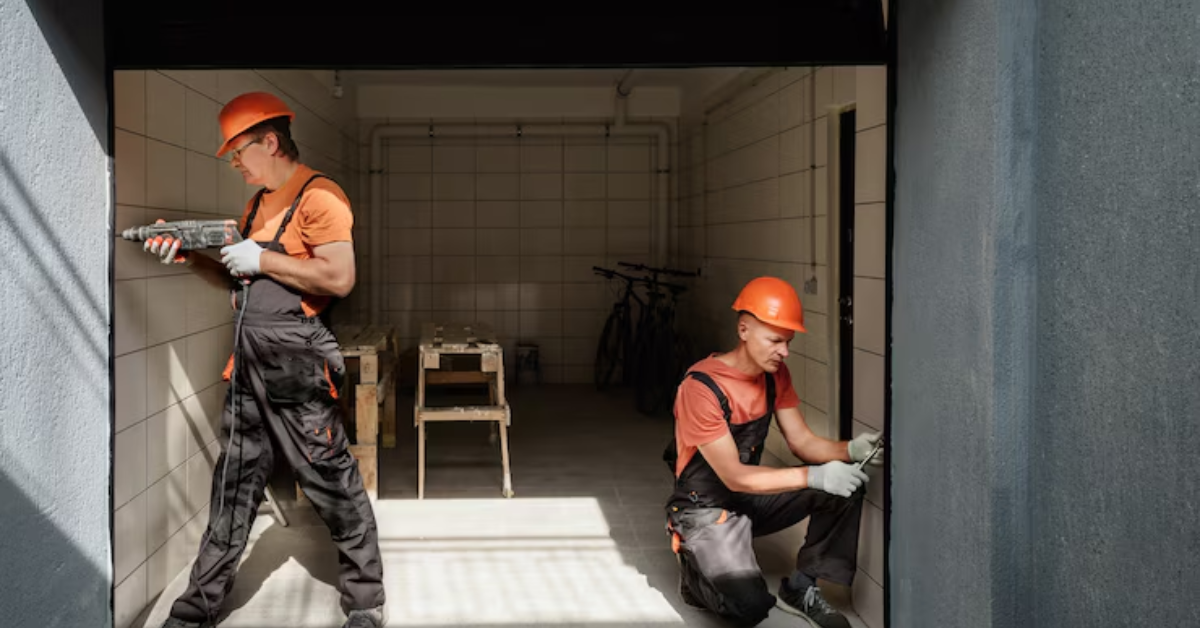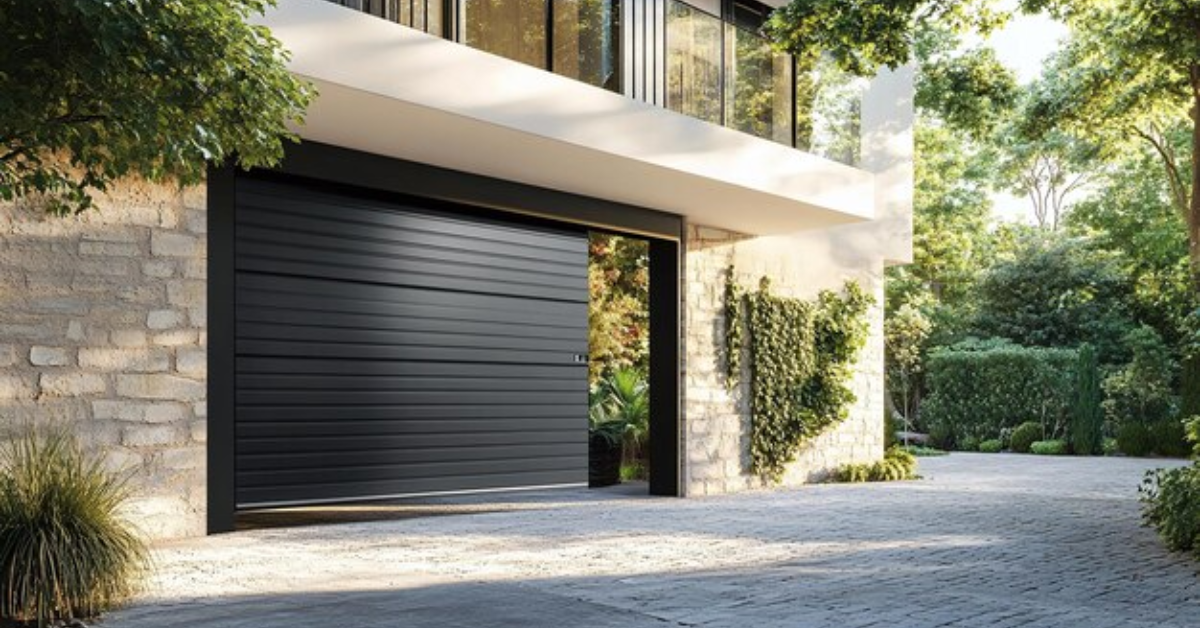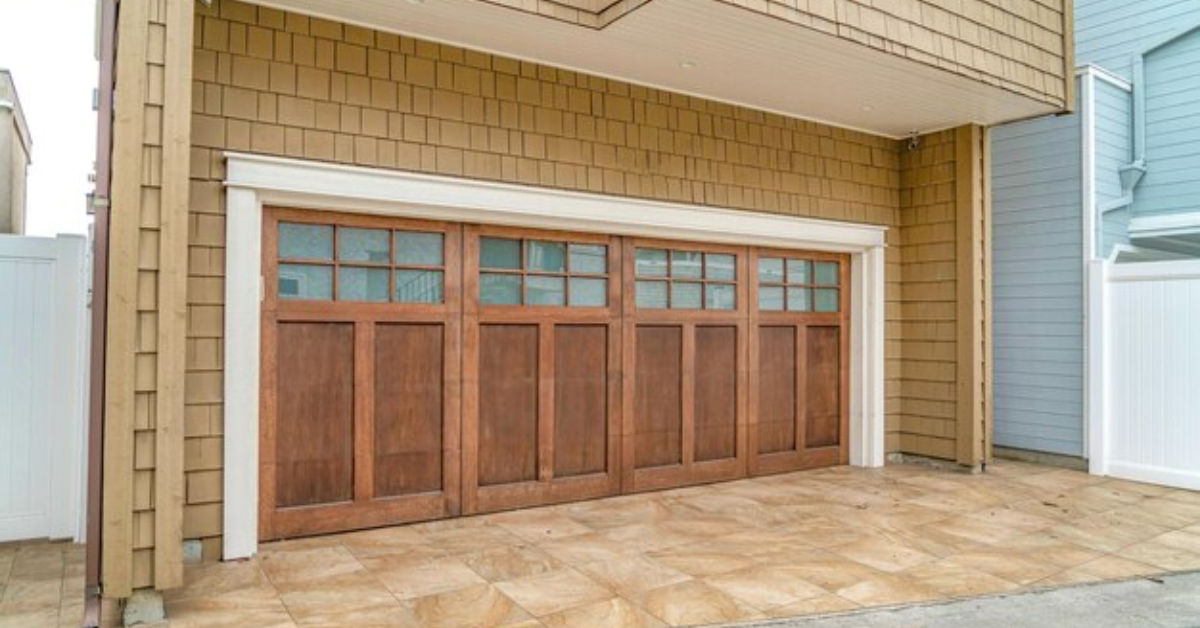How to Prepare Your Home for Automatic Garage Door Installation?
Automatic garage doors are a convenient and secure addition to any home. However, preparing for their installation requires careful planning to ensure everything goes smoothly. In this guide, we'll walk you through the essential steps to prepare your home for an automatic garage door installation, covering everything from selecting the right door to ensuring your garage is ready for the upgrade.
1. Assess Your Garage Space
- Before purchasing an automatic garage door, it’s crucial to measure your garage door opening accurately. This includes the width, height, and depth of the garage. The measurements will help you choose the right door size and ensure it fits perfectly.
- Automatic garage doors require enough space on the ceiling for the opener and tracks. Measure the distance from the top of the door opening to the ceiling, and ensure there's enough clearance. Also, check the walls for any obstacles that might interfere with the installation process.
- A level floor is essential for the smooth operation of an automatic garage door. If your garage floor is uneven, consider leveling it before the installation. An uneven surface can cause the door to misalign, leading to operational issues.
2. Choose the Right Automatic Garage Door
Consider the Material: Garage doors come in various materials, including steel, wood, aluminum, and fiberglass. Each material has its pros and cons in terms of durability, maintenance, and aesthetics. Steel doors are durable and low-maintenance, while wood doors offer a classic look but require more upkeep.
Select the Right Style: The style of your garage door should complement the overall design of your home. Whether you prefer a traditional, carriage-house, or modern look, there’s a wide range of styles available to match your home’s architecture.
Decide on Insulation: If your garage is attached to your home or you use it as a workspace, consider an insulated garage door. Insulated doors help maintain temperature and reduce energy costs. They also provide better sound insulation, which is useful if your garage is near a living area.
3. Prepare the Installation Area
Before the installation begins, clear the area around your garage door. Remove any vehicles, tools, or clutter that might obstruct the installation process. This ensures the technicians have enough space to work safely and efficiently. If you’re replacing an old garage door with a new automatic system, make sure to disconnect the old opener. This step is crucial for safety and prevents any electrical issues during the installation of the new system. An automatic garage door requires a power source. Ensure there’s a functioning electrical outlet near the garage door opener. If not, you may need to have one installed by a professional electrician before the garage door installation.
4. Schedule Professional Installation
While some homeowners might be tempted to install an automatic garage door themselves, it's usually best to hire a professional. Look for a reputable garage door installation company with positive reviews and experience in installing the type of door you’ve chosen. Talk to the installer about the estimated timeline for the installation process. Knowing how long it will take can help you plan accordingly and minimize disruptions to your daily routine. Before the installation begins, make sure you understand the warranty that comes with your new garage door and opener. A good warranty will cover both parts and labor, ensuring you're protected in case of any issues after installation.
5. Test the Automatic Garage Door
- After the installation is complete, it’s essential to conduct a safety check. Make sure the door reverses when it encounters an obstacle. This is a critical safety feature that prevents accidents and injuries.
- Test all the remote controls and the keypad to ensure they’re working correctly. If the door doesn’t respond to the remote or keypad, contact the installer to troubleshoot the issue.
- Observe the door as it opens and closes to ensure it moves smoothly without jerking or making unusual noises. If you notice any problems, have the installer adjust the settings or inspect the components for potential issues.
6. Maintain Your Automatic Garage Door
Regularly Lubricate Moving Parts: To keep your automatic garage door operating smoothly, regularly lubricate the moving parts, such as the rollers, hinges, and tracks. Use a high-quality garage door lubricant to prevent rust and reduce friction.
Schedule Annual Inspections: It’s a good idea to have your garage door inspected by a professional at least once a year. Regular inspections can catch potential problems early, saving you from costly repairs down the line.
Clean the Door and Tracks: Keep the door and tracks clean by wiping them down with a damp cloth. Dirt and debris can accumulate over time, causing the door to operate less efficiently. Regular cleaning ensures your garage door remains in good condition.
7. Enhance Security Features
- Installing a security light near your garage door can deter potential intruders. Choose a motion-activated light that illuminates when someone approaches the garage.
- Modern automatic garage door openers come with rolling code technology, which changes the access code every time the remote is used. This feature makes it more difficult for burglars to gain access to your garage.
- For added convenience and security, consider upgrading to a smart garage door opener. This allows you to control your garage door remotely via your smartphone, and you can receive alerts if the door is left open or if someone tries to tamper with it.
Conclusion
Preparing your home for automatic garage door installation involves careful planning and attention to detail. By assessing your garage space, choosing the right door, preparing the installation area, and maintaining the door post-installation, you can ensure a seamless experience. Remember, a well-installed and maintained automatic garage door not only enhances your home’s curb appeal but also improves its security and functionality. Take the time to follow these steps, and you’ll enjoy the convenience of an automatic garage door for years to come.




